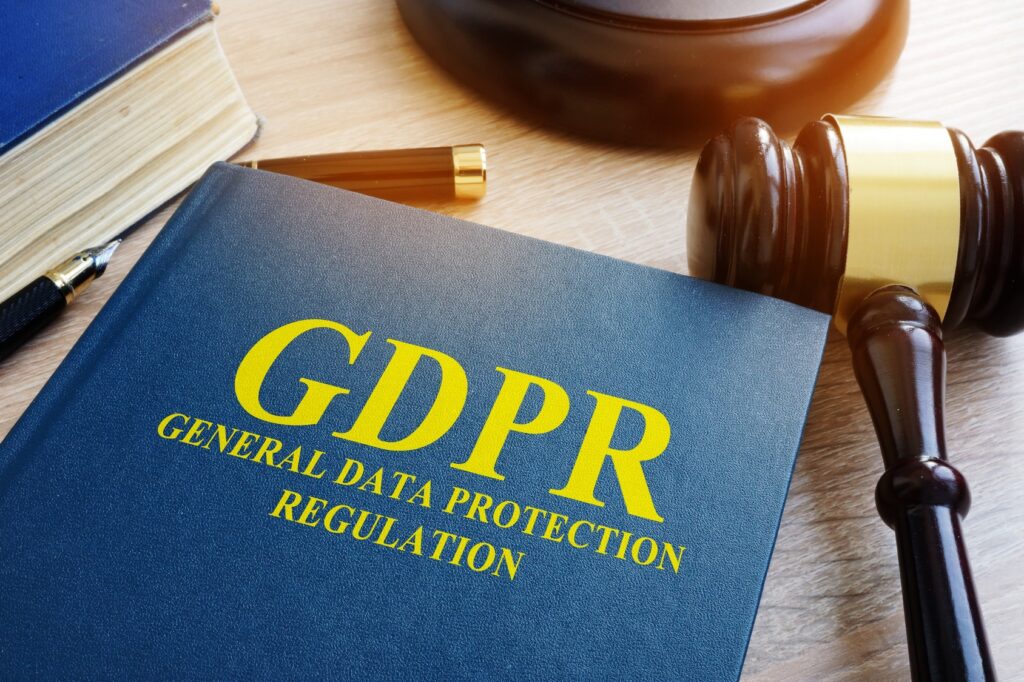It’s been just over a year since GDPR came into effect, marking a historic new chapter. One where consumer data, mishandled for decades, can no longer be used without user consent. Finally, an end to data abuse, rogue retail marketing, and consumer mistrust. Or is it?
In June, the ICO released a damning report on the state of digital marketing, indicating that the industry is consistently at odds with the practices and spirit of GDPR. What’s more, the news has been dominated by data breaches and privacy scandals the last 12 months, with some of the biggest household names in technology and business coming under fire. In January, Google was fined €50m for a GDPR violation in France. And since then, British Airways and Marriott Hotels have both been fined ‘hundreds of millions of dollars’ for GDPR data breaches by the ICO.
Organizations are collecting and continuing to send browser data to third parties for data enrichment without the necessary user consent to do so. There is a lack of transparency over how data is being bought and sold behind the scenes. In essence, large parts of the industry are operating as a black market.
The net result of all this? Unsurprisingly, consumers are cynical about their data privacy.
90% of users find mobile marketing annoying
In a recent survey conducted here at Ogury – polling 287,000 people on digital marketing practices – the findings are stark. 90% of mobile users find targeted ads annoying, with 52% agreeing that intrusive or irrelevant marketing messages left them with ‘a poor opinion’ of the website or app that hosts them. Marketers are set to spend an incredible $164bn on mobile ads this year. It’s hard to believe that after all of that outlay, nine out of every ten consumers will be left irritated by the ads they’ve been exposed to. By any measure, this is unacceptable.
Not only are many common data practices illegal, but brands and publishers are also alienating their customers in the process. Digital marketing in its current form cannot survive, and retail brands should take heed. But a solution is more straightforward than you might think.
User clarity starts with consent
Consumer clarity over data begins with consent notices; the first line of communication between retail brands and their customers. Yet it is this vital interaction that has to date, not been taken seriously enough. Our survey results reveal that more than three-quarters of consumers (78%) do not read consent notices in their entirety. And of the remaining 22% who do actually read them, more than half (52%) still don’t understand how their data is used. That’s hardly surprising when the average amount of time it takes to read a consent notice is 18 minutes.
Everyone knows what most of these forms look like. They’re packed with obscure legalese and sprawling clauses. They are rarely written in plain English. They’re too long and opaque. Fundamentally, they do not help consumers understand how organizations use their data.
But why should retail marketers care? You might well ask, “surely this is the job for our legal department?” If you want to build a trusting relationship with your customers, then it matters a great deal.
User trust is a competitive advantage
Consent notices are both a contract and a figurative handshake with consumers. Just because they are a legal necessity, that doesn’t mean they need to be so complex or off-putting. By using plain language, that’s easy to understand, quick to consume, and published in plain sight, your consent notice and data policy can be adapted from something to be suffered through, into a tool that builds trust. A chance to empower your customers to make a clear, informed choice about how their data is used.
The following example provides a good indication of what a mobile app consent notice should look like. The benefits are clearly outlined and the option to opt-in or opt-out of sharing data is crystal clear. It is designed with that key consumer trust in mind.
Online retailer ASOS also provides a good example of this, with their re-permissioning email campaign. To communicate the change in their privacy policy in light of GDPR to existing customers, the company clearly announced that the ‘law is changing’, and highlighted that consumer action was required. The purpose is outlined in a clear and concise way, and consumers are given choice over whether or not to opt-in to brand communications. Its execution puts consumers in control, giving the brand the opportunity to turn legal requirement into smart communication with its clients.
And in this GDPR and post-Cambridge Analytica world, where guards are up and consumers don’t know how their data is being used, trust is a competitive advantage. More than this, it’s a route to sustainable business growth. But just how willing are consumers when it comes to sharing their data? And how protective are they over it today?
How consumers feel about sharing data
Data has become arguably the most important commodity of the modern age. It’s gold-dust for retail marketers and brands looking to form meaningful relationships with consumers. And consumers know this too. Our research revealed that 71% of consumers said they preferred to share their data – such as mobile app and website usage – to view content online without having to pay money.
The good news is, the insights that we as marketers can extract from this data give us the opportunity to deliver marketing and ads that speak to the interests and passion points of our customers. We can offer a value exchange in return for data that consumers are willing to share. But only when they understand how their data is being used and when they’re given fair choices.
And aside from data, the remaining 29% of respondents stated that they would ‘prefer to pay’ for content (access to apps and websites), by paying with real money. To establish trust in this diverse market, it’s time for a new model. One that not only respects users’ choices over sharing data, but also gives them the option to pay with money to access content in a marketing and data collection free environment.
It’s time for a new model, and fair choices
Before data is collected, users must first give their consent – this is non-negotiable. But what happens next is crucial. Offering consumers the following choices will be a game-changer:
Opt-in to access content for free by sharing anonymous data, and receive personalized and relevant marketing recommendations that align with their passions and interests.
Opt-out from sharing data and currency entirely, at the risk of receiving irrelevant ads that undermine their user experience.
Pay a fair price to access content in a marketing and data collection free environment.
This fair choice respects users’ desire to keep control over their data, builds trust, and provides retail brands with a viable business alternative at the same time.
Change perspectives, enable trust
Retailers should focus on changing perceptions both at a business and consumer level so that the GDPR is seen as an enabler of customer trust, rather than an inhibitor of progress. They should put consumer choice and data privacy at the centre of their digital marketing execution. In doing so, they will outperform their peers in the long run. Not only is this the right thing to do, commercially it’s best practice.
Author: Raphael Rodier, chief revenue officer, international, Ogury.










One Response
GDPR has been a complete waste of money for everyone involved by eurocrats who don’t understand digital.